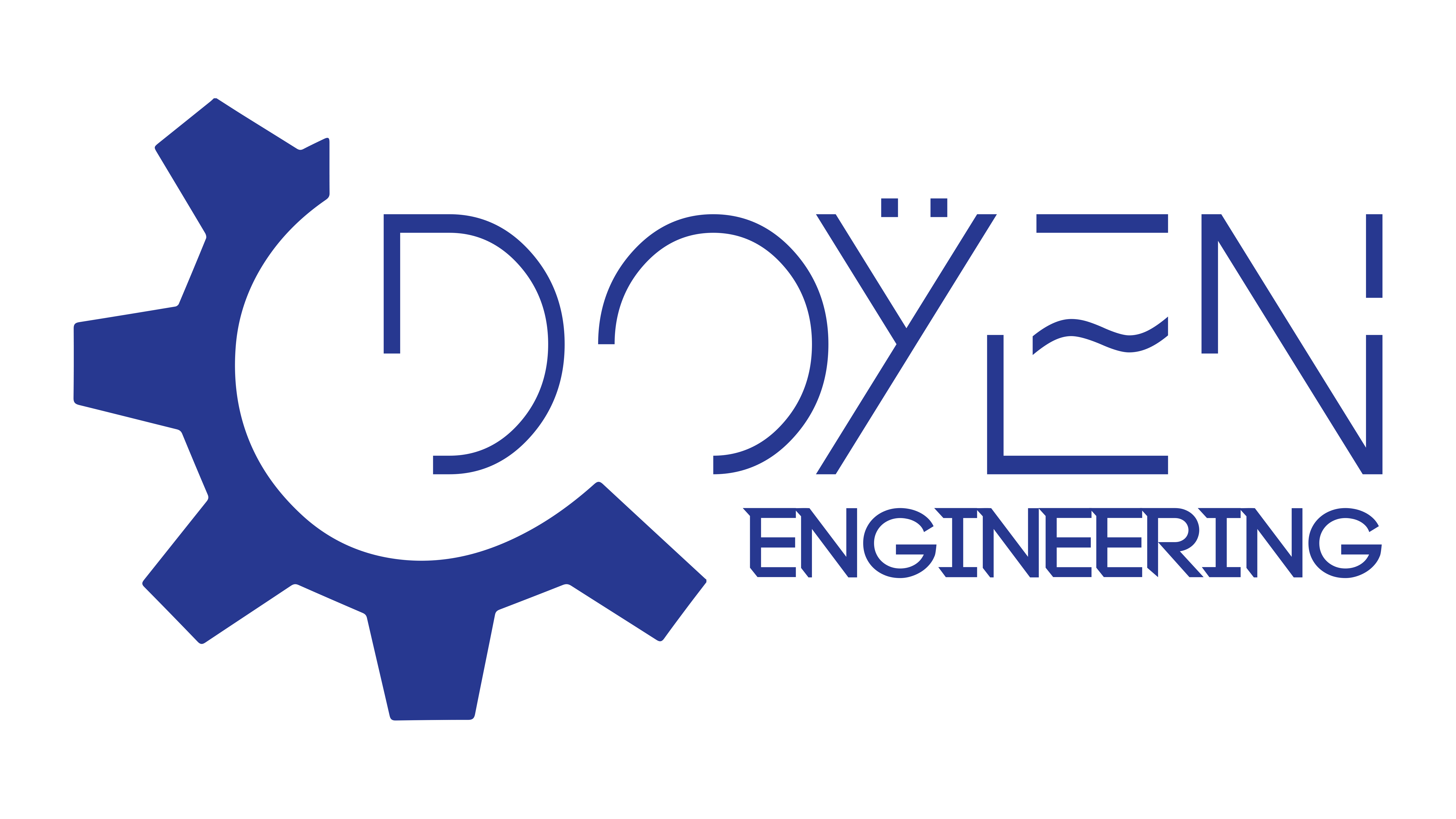
Introduction
Importance of Networking for Electrical Engineers
Networking plays a vital role in the professional growth of electrical engineers. Through connections made in the industry, engineers can discover job opportunities, stay updated on technological advancements, and foster collaborations for innovative projects. Personal stories often highlight how a simple conversation at a seminar led to a dream job or a pivotal partnership.
Overview of Networking Strategies
To effectively network, engineers can implement several strategies:
- Leverage Online Platforms: Make use of social media and professional networking sites like LinkedIn.
- Attend Events: Engage in industry conferences, workshops, and career fairs to meet like-minded professionals.
- Join Organizations: Become a member of professional bodies that offer a plethora of resources and connections.
These strategies not only enhance visibility but also aid in building a robust support system essential for career advancement.

Building a Strong Online Presence
Utilizing Social Media Platforms
In today's digital era, social media platforms are invaluable tools for electrical engineers to showcase their expertise and connect with peers. Platforms like Twitter, Instagram, and Facebook offer a unique opportunity to share industry insights, projects, or even daily experiences. Consider these tips for effective usage:
- Share Projects: Post images or videos of your engineering projects.
- Follow Industry Leaders: Stay updated by connecting with influential professionals in your field.
- Engage in Discussions: Participate in relevant conversations to demonstrate your knowledge and eagerness to learn.
With commitment, social media can foster relationships that translate into real-world opportunities.
Creating an Engaging LinkedIn Profile
LinkedIn is the premier platform for professional networking, especially for electrical engineers looking to elevate their careers. An engaging profile acts as your virtual business card.
- Professional Photo: Use a clear, professional headshot.
- Compelling Headline: Highlight your specialization and career aspirations.
- Detailed Summary: Share your passion for engineering, notable achievements, and career goals.
For instance, include keywords such as "renewable energy" or "automation" to make your profile searchable. A well-rounded LinkedIn presence can attract recruiters and continually expand your professional network.
Attending Industry Events
Participating in Conferences and Workshops
Attending conferences and workshops is a powerful way for electrical engineers to enhance their knowledge and expand their professional networks. These events bring together industry leaders, emerging technologies, and like-minded individuals, creating an ideal platform for learning and collaboration. Here are some benefits to consider:
- Skill Development: Workshops often include hands-on sessions, giving you practical experience.
- Access to Innovations: Conferences showcase the latest advancements in electrical engineering.
- Expert Insight: Listen to keynote speakers whose work you admire to gain valuable perspectives.
Many professionals can attest to landing new job opportunities or collaborations simply by engaging in discussions during these events.
Networking at Career Fairs
Career fairs are excellent venues for electrical engineers to meet potential employers and learn about various companies in their field. The atmosphere is often electric with excitement and opportunity, and approachability is key to making meaningful connections. To make the most of career fairs:
- Research Attendees: Know which companies will be present and tailor your conversations accordingly.
- Bring Resumes: Always have updated copies of your resume ready to distribute.
- Practice Your Elevator Pitch: Prepare a brief introduction that highlights your skills and interests in electrical engineering.
Personal experiences shine through at these events; many engineers have walked away with internships or job offers simply based on a friendly conversation. By actively participating, engineers can significantly enhance their career trajectories and professional networks.

Joining Professional Organizations
Benefits of Membership
Becoming a member of professional organizations catering to electrical engineers offers numerous advantages that extend beyond networking. These groups often provide a wealth of resources that can enhance both knowledge and career prospects. Some notable benefits include:
- Access to Resources: Members typically enjoy access to industry publications, research papers, and exclusive webinars.
- Certification Opportunities: Many organizations offer credentials that can boost your resume.
- Job Boards: Access to specialized job listings that are often exclusive to members.
For instance, a friend of mine found their dream role through a job board provided by a professional organization they joined. The connections and insights gained from membership were truly transformative.
Engaging in Local Chapters
Participating in local chapters of professional organizations can amplify the benefits even further. These smaller, community-based groups often foster closer connections and more personalized networking opportunities. Consider these engaging aspects:
- Regular Meetings: Attend local events to meet peers and discuss industry trends first-hand.
- Workshops: Participate in local training sessions tailored to regional needs, enhancing specialized skills.
- Networking Opportunities: Local chapters often host mixers, creating a relaxed environment to meet fellow professionals.
Many engineers find that these intimate settings lead to stronger relationships and collaboration opportunities, enhancing their careers in a meaningful way. Through local engagement, members can cultivate a supportive professional circle that lasts a lifetime.

Connecting with Industry Professionals
Conducting Informational Interviews
One of the most effective ways to connect with industry professionals is through informational interviews. These are not traditional job interviews but rather casual conversations where you seek advice and insights about the field. They can be a game-changer in understanding career paths.Here’s how to conduct a successful informational interview:
- Identify Potential Contacts: Reach out to alumni or mutual connections on LinkedIn.
- Prepare Questions: Formulate specific questions regarding their experiences, challenges, and tips for newcomers.
- Be Respectful of Time: Keep it concise, respecting their schedule—20-30 minutes is often ideal.
I recall reaching out to a senior engineer I admired, and our conversation provided invaluable guidance that shaped my career decisions.
Building Mentoring Relationships
Establishing mentoring relationships can further enhance your professional journey. A mentor acts as a guide, providing insights, advice, and support to navigate career challenges. To foster a productive mentoring relationship:
- Be Proactive: Seek out mentors within your network or through professional organizations.
- Set Goals: Clearly define what you want to achieve from the mentorship experience.
- Stay Engaged: Regular communication is key; whether through texts, emails, or meetings, keep the relationship active.
Many engineers attribute their success to mentors who not only shared knowledge but also opened doors to new opportunities. Building these nurturing relationships can lead to long-lasting professional growth and fulfillment.
Leveraging Alumni Networks
Tapping into Alumni Resources
Alumni networks can be invaluable assets for electrical engineers looking to foster their careers. Many universities provide extensive resources that can aid professionals at any stage of their journey. Engaging with these resources can yield substantial benefits.Consider the following resources:
- Job Boards: Access exclusive job listings tailored for alumni in your field.
- Workshops and Webinars: Participate in skill-enhancing sessions specifically designed for alumni.
- Mentorship Programs: Some institutions offer structured mentorship initiatives connecting seasoned professionals with recent graduates.
I personally found an incredible job opportunity through my university’s alumni job board, highlighting the effectiveness of these resources.
Networking Through Alumni Events
Participating in alumni events is another potent way to expand your professional network. These gatherings create an inviting atmosphere where you can reconnect and forge new connections with fellow graduates. To maximize your experience at these events:
- Be Approachable: A friendly demeanor encourages others to engage with you.
- Prepare Your Introduction: Have a concise summary of who you are and what you seek from the event.
- Follow Up: Exchange contact information and send a follow-up message to further solidify the connection.
Many engineers credit their career advancements to valuable connections made at alumni events, proving that nurturing these relationships can lead to significant career opportunities and collaborative projects.

Developing Communication Skills
Mastering Elevator Pitches
Effective communication is crucial in networking, and mastering the art of the elevator pitch is a fantastic place to start. An elevator pitch is a brief, persuasive speech that introduces you and highlights your skills, ideal for those unexpected networking opportunities. Here are key components of a compelling elevator pitch:
- Start with a Hook: Begin with an engaging statement or question that grabs attention.
- Introduce Yourself: Clearly state your name and profession—be specific about your expertise.
- Highlight Your Value: Briefly mention a unique skill or recent achievement.
- End with a Call to Action: Invite the listener to continue the conversation or exchange contact information.
I once had a chance encounter at a coffee shop where my quick pitch led to a valuable connection in the renewable energy sector!
Enhancing Networking Conversations
Once you’ve perfected your elevator pitch, the next step is to enhance the overall quality of your networking conversations. Meaningful dialogue goes beyond just introducing yourself; it involves listening, engaging, and connecting on a personal level. To facilitate impactful conversations:
- Practice Active Listening: Show interest in what others are saying by nodding and asking follow-up questions.
- Share Experiences: Relate personal anecdotes that enrich the conversation and create common ground.
- Be Authentic: Don't shy away from showcasing your personality; genuine connections are often more memorable.
For example, sharing a relatable story about a project you worked on created an instant rapport with a fellow engineer at a recent event. Developing strong communication skills sets the stage for building meaningful relationships that can foster professional growth.

Utilizing Online Networking Tools
Exploring Networking Platforms
In today's digital era, leveraging online networking tools is essential for electrical engineers looking to expand their professional networks effectively. Various platforms cater specifically to industry professionals, offering unique opportunities to connect and collaborate.Consider these popular networking platforms:
- LinkedIn: The go-to platform for professional networking, where you can join industry groups and showcase your expertise.
- Meetup: Discover local tech groups and events tailored to your interests and profession.
- GitHub: For engineers involved in software or coding, this platform allows collaboration on projects and sharing of innovations.
I once gained significant insights into industry trends simply by engaging with articles shared by colleagues on LinkedIn.
Engaging in Online Forums
Another powerful way to leverage online networking is by participating in online forums dedicated to electrical engineering. These forums provide a space for professionals to ask questions, share advice, and discuss trends with peers worldwide.Tips for effective engagement:
- Choose the Right Forums: Participate in platforms like Reddit (r/engineering), Electrical Engineering Stack Exchange, or specialized industry forums.
- Contribute Meaningfully: Share your knowledge by answering questions or providing insights; be an active participant.
- Connect with Members: Don’t hesitate to message individuals who share your interests or expertise, fostering connections that may lead to collaborations.
For instance, by answering a technical query on a forum, I was able to establish a connection with a senior engineer who later assisted me in achieving my career goals. Utilizing online networking tools enhances your visibility and helps cultivate a supportive professional network, pivotal for career advancement.
Building and Nurturing Relationships
Following Up After Networking Events
Building connections at networking events is just the beginning; following up is crucial for solidifying those relationships. A prompt follow-up reinforces your interest and helps you stand out in a sea of new faces.Here’s how to effectively follow up:
- Send a Thank-You Email: Mention details from your conversation to personalize the message.
- Connect on LinkedIn: Reinforce your meeting by adding them to your network with a personalized note.
- Share Relevant Resources: If you discussed specific topics, send an article or resource related to your conversation.
After a recent seminar, I followed up with a peer I met, sharing an article relevant to our discussion on renewable energy, which led to further insightful exchanges.
Maintaining Long-Term Connections
Once you've established connections, the next step is to nurture those relationships over time. Maintaining long-term connections requires effort but can yield reward through mutual support and professional opportunities. Consider these strategies:
- Schedule Check-Ins: Set reminders to reach out every few months to see how they’re doing.
- Celebrate Their Achievements: When you see them achieve a milestone, send a congratulatory message to show you care.
- Engage on Social Media: Like, share, or comment on their posts to stay visible and engage in their professional life.
For example, I remember celebrating a colleague’s work anniversary on LinkedIn, which led to a catch-up call, allowing us to exchange updates and explore potential collaborations. By focusing on building and nurturing relationships, engineers can cultivate a network that not only supports their professional journey but also enriches their personal experiences.
Networking for Career Advancement
Using Networking for Job Search
Networking is an essential tool for any electrical engineer looking to advance their career, particularly when it comes to job searching. Many positions are filled through connections before they ever hit the job boards, making it crucial to leverage your network effectively.Here are some strategies:
- Inform Your Network: Let your connections know you're exploring new opportunities; you might be surprised by the leads they provide.
- Seek Referrals: Don’t hesitate to ask for introductions to hiring managers within your network.
- Tap into Alumni and Professional Groups: These communities often have special channels for job postings and insider information.
I once landed an interview for a highly competitive position through a referral from an old classmate, illustrating the importance of keeping connections informed.
Leveraging Connections for Professional Growth
Beyond job searching, networking is a powerful means of fostering professional growth. Through established relationships, you can gain insights, foster mentorship, and uncover learning opportunities that would otherwise remain hidden.Consider these approaches:
- Request Feedback: Reach out to connections for constructive criticism on your work; this can provide fresh perspectives.
- Collaborate on Projects: Partnering with peers allows for skill-sharing and can lead to innovation.
- Attend Learning Opportunities Together: Inviting a connection to workshops or seminars can strengthen bonds and foster collective learning.
For example, collaborating on a project with a former colleague not only enhanced my technical skills but also contributed to my portfolio. By strategically networking for both job opportunities and professional development, engineers can cultivate a thriving career landscape that paves the way for long-term success.





